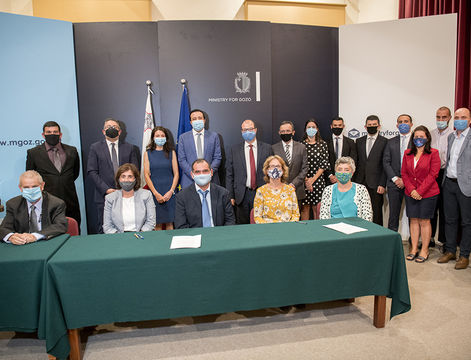
The official launch of the Gozo Artisan Network
The Gozo Artisan Network and the territorial quality brand is the result of a pilot action within the Interreg Europe Destination SMEs Project,
The aim of Destination SMEs is to assist European territories in designing effective destination management strategies in order to provide tourist SMEs with a favourable environment for growth and improve their competitiveness.
The project brings together 7 partners from 7 European countries (France, Italy, Malta, Ireland, Finland, Latvia, Slovenia) consisting of a mix of public authorities at national, regional and local level and agencies having a delegation of competences from their public authority.
Tourist SMEs need favourable conditions to succeed and to increase their competitiveness. Only a well-managed "Destination" can offer such conditions.. how?
Thanks to the interregional exchange, the analysis of policies and best practices from different countries and the involvement of relevant stakeholders within each area, the partners will have the opportunity to improve their territorial policies or to develop new destination management projects (action plans), giving an effective support to SMEs of the tourist sector.
€1,483,536.00
SME competitiveness
This measure aims at supporting the creation, the development, the innovation and the improvement of the productivity of tourist SMEs.
Only private investment projects (like tourist accommodation) are eligible to these subsidies.
It is expected that supported SMEs will contribute to the economy of their territory, directly and indirectly.
During the previous programming period, the Tourism Department of the Auvergne regional Council observed that beneficiaries of ERDF located on a territory where a destination management strategy had been developed, were more successful than others to attract customers.
Indeed tourist SMEs are part of a destination, an area with activities, accommodation, transportation systems etc. Destinations that are well managed are more likely to generate `wise growth' in their visitor economy.
This is why the Tourism Department introduced an inflexion in this new Operational Programme to give a preference to projects located on a territory where a destination management body or strategy exists.
But the measure does not give any support to the implementation of such destination management strategies, which means that many territories in the region, and consequently many SMEs, don't benefit from the favourable environment that an "organized destination" can provide. This is the point that needs to be improved in the OP, which can be done twice a year (Application Doc.) or in 2018 (mid-term review of the OP).
The priority axis 3 is dedicated to the competitiveness promotion of SMEs. The main objective of the axis is the strengthening, modernisation and diversification of the productive systems. The intended result of the measure is to increase tourist flows in relation to the population (target value: from 23,2 days of 2013 to 24,5 days in 2023).
The selected Investment priority is 3.b, which aims at developing and realizing new models of activities for SMEs, in particular as far as internationalization is concerned.
Action 3.3.2 is focused on the support to the development of products and services complementary to the enhancement of identified cultural and natural attractiveness factors of the territory, even by means of the integration of businesses belonging to the cultural, tourist, sports, creative and media sectors and to the traditional and typical products supply chain.
The foreseen interventions are oriented to the qualification of the accommodation and reception services and to the support to the SMEs operating in the cultural and tourist fields.
In order to increase the effectiveness of the policy which was recently approved, P2 wants to benefit from new project ideas abroad to inspire local businesses to present similar innovative projects in their territory, increasing the use of available ERDF funds by local entrepreneurs.
This policy instrument aims to translate the national Sustainable Development policy into a sustainability action plan for the island of Gozo, resulting in a stronger economy, a sounder environment and an improvement of the island’s social and cultural milieu. Like all sustainability action plans, this policy is in constant need of revision and improvement. The Rural Tourism aspect – identified in the National Tourism Policy as the strategic choice for Gozo - is seen as crucial in this regard. In fact, the National Tourism Policy states that: “Gozo has established itself strongly as a quality destination attracting activity and special interest holidays. Gozo is also strong in quality relaxation travel, besides also having pioneered aspects such as rural-tourism experiences. These are attributes which strongly differentiate Gozo from mainland Malta and need to be further developed as part of the Island’s strategy to achieve more sustainable tourism flows.”
The following actions are listed as Policy actions with respect to Gozo:
• Development of a specific tourism strategy for Gozo within the framework of the national tourism policy
• Support Gozitan traditional crafts and promote the artisans who work in these sectors
• Initiatives supporting the rural characteristics of Gozo
• Incentives supporting Green Tourism
All these points could be dealt with by developing a transversal Destination Management strategy in order to answer all the needs identified in the policy document
The Operational Programme sets out a strategy, including a set of investment priorities to meet the strategic objectives set for the Regional OP. The specific objective 3a, that corresponds with investment priority 3a, is ‘To increase employment levels in micro-enterprises in the Southern and Eastern Region by supporting business start-ups, business expansion and higher innovation levels in micro-enterprises’.
The investment priority supports start-ups and growing businesses through the provision of business information, advisory services, capability building, mentoring and financial supports.
Micro-enterprise supports are administered by Local Enterprise Offices in each local authority area. The OP states that supports will be provided for SMEs specifically targeted at micro-enterprises in the manufacturing and traded services sectors. The potential for growth in the tourism sector should be acknowledged with specific reference to the extension of supports to tourist SMEs.
Also, there is a need to include supports for the establishment of destination management body(s)/ cluster for tourism related SMEs, which could develop a destination management strategy, as there is no such provision in the current OP. Unless there is specific policy support to encourage territories to organise themselves as a tourist destination, tourist SMEs are unlikely to succeed. The establishment of such a body/ cluster would increase the efficiency and effectiveness of current ERDF supports.
The Tourism Operational Programme of North Karelia 2014-2020 aims at improving competitiveness of tourism destinations, increasing international tourism, developing tourism events, nature- and culture-based tourism product development. In North Karelia, tourism sector is scattered and there is a lack of tourism SMEs agglomerations. Resources allocated to tourism development should be targeted at fewer projects, objectives and actors based on the tourism entrepreneurs needs. Better coordination and enhancing SMEs agglomerations are main foci.
The Tourism Operational Programme of North Karelia 2014-2020 is a sub-programme of the Regional Strategic Programme of North Karelia for 2014-2017 that outlines regional development targets based on the region’s potential, needs, culture and special characteristics. Tourism is one of the selected development targets.
This policy aims at promoting international awareness of Latvian products and services, thus increasing the competitiveness of enterprises in external markets and hence, the volumes of export of goods and services of SME’s.
It does not cover destination management as one of the means for increasing competitiveness of SMEs.The cooperation approach for implementing destinations and promoting SMEs development and cooperation is missing.
It is important that national level policy instrument includes the needs of Vidzeme region tourist SMEs. Latvian tourism development policy guidelines aims at accentuating the creation of regional tourism clusters. Educating tourism SMEs on the benefits of developing their business and joining clusters is encouraged in the Tourism development policy guidelines. Destination SMEs will help to draw the attention to destination management issues.
Vidzeme region set up a tourism cluster in the Gauja national park and sustainable tourism is included as one of the region’s S3 areas. In order to develop the cluster and implement region’s S3, it is important to improve the coverage of destination management in the National Operational Programme.
Since the last planning period, there have been discussions of the disadvantages of dispersed investments and on the advantages of stakeholder cooperation in a destination. The detailed conditions of implementing the policy instrument are still in progress, so it would be advisable to include clustering in it.
The policy to facilitate increase the competitiveness of Slovenian tourism is included in Slovenian Tourism Development Strategy. Within the project we will focus on the Measure 1.1 of respected policy - namely “Encouraging development of tourist destinations” which proposes an active participation of all stakeholders in Slovenian tourism (regional tourism organisations, local tourism organisations, tourist societies, etc.) for developing effective tourism destinations with high-quality and attractive integrated tourism products as well implementing sustainable and responsible management in the tourism industry and at destinations.
Slovenian Tourism Development Strategy is the key strategic document in the field of tourism development and sets out the role and the importance of all stakeholders in this field. Roughly, we can summarise three development areas in national tourism strategy:
- increase competitiveness,
- increase favourable business environment and
- increase efficient and innovative marketing.

The Gozo Artisan Network and the territorial quality brand is the result of a pilot action within the Interreg Europe Destination SMEs Project,
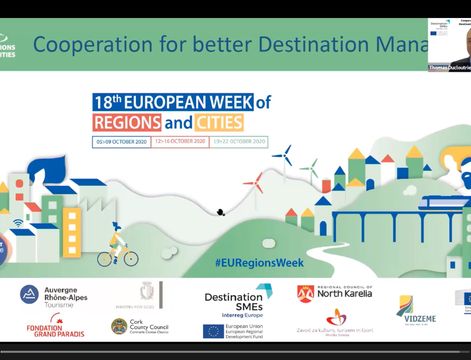
The workshop “Cooperation for better Destination Management” was held on October 14, 2020 with the aim of sharing DSMEs Projects tips and tricks on what makes
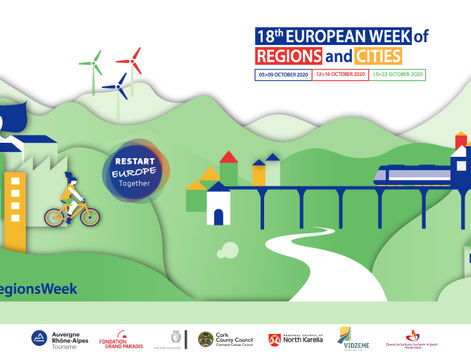
What makes a destination management policy more effective? Destination SMEs project will share tips and tricks on governance and empowerment of SMEs.
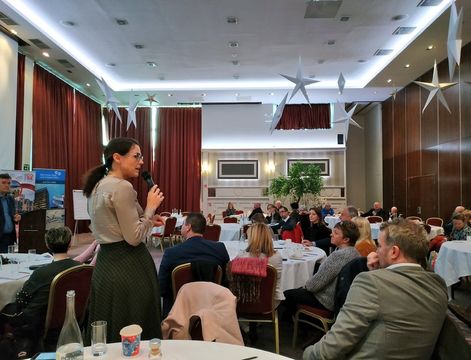
Cork County Council recently hosted an awareness event about the project and extent of supports available for SMEs in the Tourism sector in Cork.
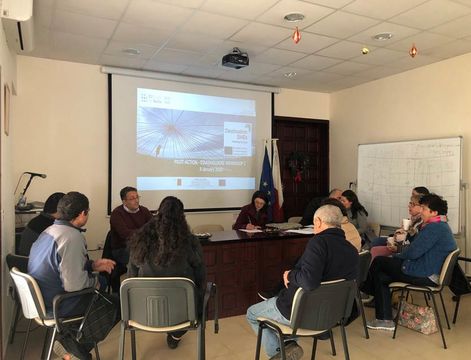
The Ministry for Gozo is pleased to announce that the Interreg Europe monitoring committee has approved the request for a pilot action
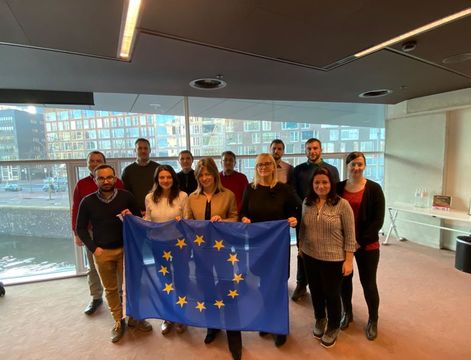
At one year from the beginning of the second phase, the Project Partners met in Amsterdam to supervise its development and to plan the next actions.
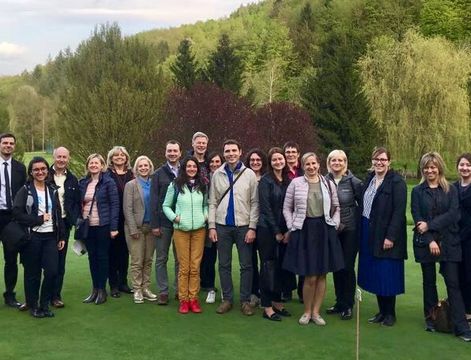
During study visit in Slovenia "Destination SMEs" partners learned about public policies and implemented initiatives related to destination management.

In December 2017 Destination SMEs partners went to North Karelia, Finland, to learn about the region’s practices related to destination management.
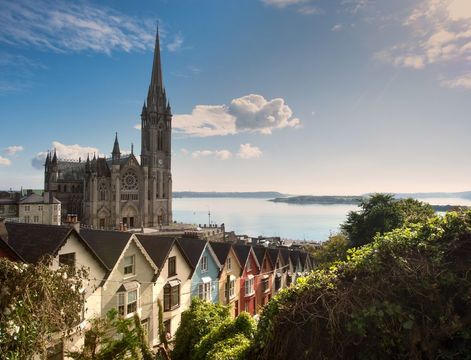
Destination SMes project: policy learning in Destination Management moves to Cork
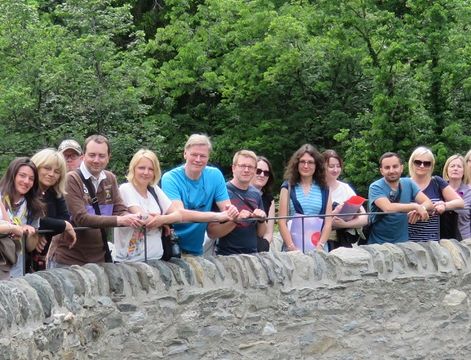
Destination SMEs partners met in Italy from 29 May to 1 June 2017 in the Gran Paradiso area (Aosta Valley) for the fourth project study trip.